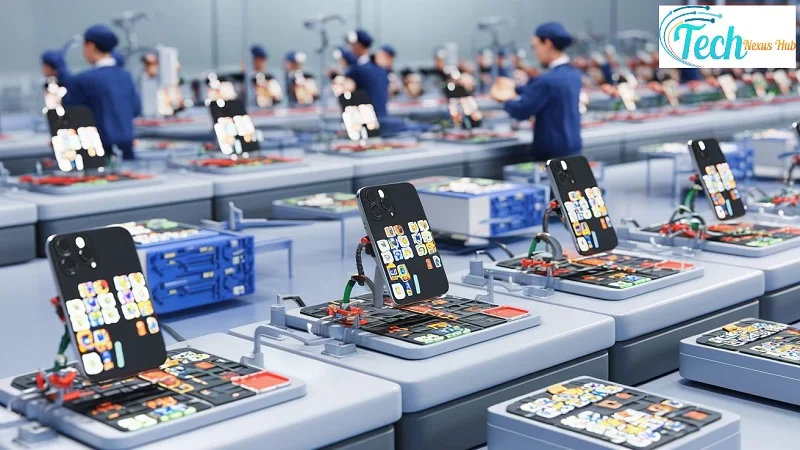Indonesia next year will increase the percentage of local content in smartphones assembled and marketed in the country. This plan was made by the deputy industry minister for this purpose that is increasing the production of locally manufactured products and to minimize dependence on imported parts.
Indonesia Strengthens Local Content Mandates for Smartphones
The move comes after the Indonesian government recently prohibited the sale of Apple’s iPhone 16. The device also violated the current rule that requires the manufacturer of a smartphone to source at least 40% of the device’s components within the country. This enforcement shows that Indonesia is really striving to protect and to develop its own industries.
Increasing the threshold for locally produced content is once again expected to hold benefits as well as pressures for international smartphone producers. It may compel them to create or extend local production centres yet it confirms the expanding role of Indonesia in the international IT manufacturing network.
It is suggested that this policy could open unlimited investment opportunities in Indonesian manufacturing and technology fields. This could also enhance linkages between local suppliers and global brands promoting development of local innovations in production and employment of people within the country.
In the case of the consumers, the changes that may come out the change may lead to change in the availability of products as well as the prices. Nonetheless the government strongly believes that this sentiment will have a positive long term impact to the domestic economy and make Indonesia as a more resilient and competitive player in the technology sector.
Indonesia Rejects Apple’s $100M Plant Proposal Amid Local Content Push
Indonesian government has turned down an offer by Apple to lift the ban on iPhone 16 through provision of $100 in investment. The accessory and component plant proposal was perceived to be unfair since it does not fit the Indonesia global goal of adjunct development of local industries.
The ban, implemented after the iPhone 16 did not pass the 40% local content threshold, shows that Indonesia is serious about establishing itself on the production of automobiles and electric cars. The fact that the government rejected Apple’s offer shows that it is against discriminatory distribution of the value brought in to the local community by foreign investments.
Deputy Industry Minister Faisol Reza acknowledged during a recent interview that communication is still taking place as to the next steps. As yet, no timeframe has been given but the government is currently looking at how much more the local content ratio should be raised to support industrialisation.
Apple has not said anything publicly regarding the matter even after being contacted several times by this reporter. This situation has made the position of the company in the Indonesian market rather ambiguous since it has to face many changes in regulations of the country.
New advancement is in tune with Indonesia’s goals to prepare for a moreLocalization accentuation on local technology company self-sufficiency. Government of the nation aims to increase the limitation for local content to possible level, in order to encourage investments in the areas which are strictly connected with the manufacturing and development domains of the nation’s economy.
Indonesia Eyes Stronger Local Industry Amid Apple Talks
Despite the increased pressure from the smartphone manufacturers, the Indonesian government did not waver on the policy to improve domestic industries via the local content requirements for the gadgets. The deputy Minister Faisol Reza also stressed the idea of self-sufficiency and local development with the reporters.
This may lead to one of the territories under review, namely, the possibility to include investments in the research and development into the local content balance. It could help international tech giants to sync up their plans with the Indonesian industrial schedule.
Apple, which does not have its manufacturing centers in Indonesia, has used such measures as academies for application developers since 2018. Despite the improvement brought by these academies for the local content regulation in the older iPhone models, it may not satisfy the revised regulation.
It has remained fluid up to the present since Apple and its officials are expected to hold a new meeting with the Indonesians shortly. The talks are expected to discuss some middle ground that will encompass the country’s policies on the one hand and the company’s business concerns on the other.
While Indonesia is in the process of revisiting it localization regulation, the resolution to these talks could set the tone for how these large tech companies operate in the new markets. This includes government policies and decisions to promote domestic interests and protect domestic industries from international competition; the regulation of standard-setting bodies; the demand for non-tariiff barriers in national markets; the effect on investment opportunities; changes in the nature of rewards for innovation; and the restriction of opportunity for exports.


